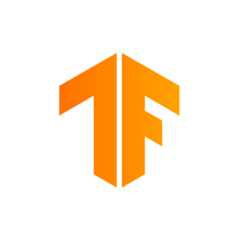- Notifications
You must be signed in to change notification settings - Fork1
Computation using data flow graphs for scalable machine learning
License
meteorcloudy/tensorflow
Folders and files
| Name | Name | Last commit message | Last commit date | |
|---|---|---|---|---|
Repository files navigation
Documentation |
|---|
TensorFlow is an open source software library for numerical computation usingdata flow graphs. The graph nodes represent mathematical operations, whilethe graph edges represent the multidimensional data arrays (tensors) that flowbetween them. This flexible architecture enables you to deploy computation to oneor more CPUs or GPUs in a desktop, server, or mobile device without rewritingcode. TensorFlow also includesTensorBoard, a data visualization toolkit.
TensorFlow was originally developed by researchers and engineersworking on the Google Brain team within Google's Machine Intelligence Researchorganization for the purposes of conducting machine learning and deep neuralnetworks research. The system is general enough to be applicable in a widevariety of other domains, as well.
Keep up to date with release announcements and security updates bysubscribing toannounce@tensorflow.org.
SeeInstalling TensorFlow for instructions on how to install our release binaries or how to build from source.
People who are a little more adventurous can also try our nightly binaries:
Nightly pip packages
- We are pleased to announce that TensorFlow now offers nightly pip packagesunder thetf-nightly andtf-nightly-gpu project on pypi.Simply run
pip install tf-nightlyorpip install tf-nightly-gpuin a cleanenvironment to install the nightly TensorFlow build. We support CPU and GPUpackages on Linux, Mac, and Windows.
$ python
>>>importtensorflowastf>>>hello=tf.constant('Hello, TensorFlow!')>>>sess=tf.Session()>>>sess.run(hello)'Hello, TensorFlow!'>>>a=tf.constant(10)>>>b=tf.constant(32)>>>sess.run(a+b)42>>>sess.close()
Learn more examples about how to do specific tasks in TensorFlow at thetutorials page of tensorflow.org.
If you want to contribute to TensorFlow, be sure to review thecontributionguidelines. This project adheres to TensorFlow'scode of conduct. By participating, you are expected touphold this code.
We useGitHub issues fortracking requests and bugs. So please seeTensorFlow Discuss for general questionsand discussion, and please direct specific questions toStack Overflow.
The TensorFlow project strives to abide by generally accepted best practices in open-source software development:
| Build Type | Status | Artifacts |
|---|---|---|
| Linux CPU |  | pypi |
| Linux GPU |  | pypi |
| Linux XLA | TBA | TBA |
| MacOS |  | pypi |
| Windows CPU | pypi | |
| Windows GPU | pypi | |
| Android |
| Build Type | Status | Artifacts |
|---|---|---|
| IBM s390x | TBA | |
| IBM ppc64le CPU | TBA | |
| IBM ppc64le GPU | TBA | |
| Linux CPU with Intel® MKL-DNN® | TBA |
- TensorFlow Website
- TensorFlow White Papers
- TensorFlow YouTube Channel
- TensorFlow Model Zoo
- TensorFlow MOOC on Udacity
- TensorFlow Course at Stanford
Learn more about the TensorFlow community at thecommunity page of tensorflow.org for a few ways to participate.
About
Computation using data flow graphs for scalable machine learning
Resources
License
Code of conduct
Contributing
Security policy
Uh oh!
There was an error while loading.Please reload this page.
Stars
Watchers
Forks
Packages0
Languages
- C++48.3%
- Python40.9%
- HTML5.1%
- Jupyter Notebook2.4%
- Go1.3%
- Java0.8%
- Other1.2%
